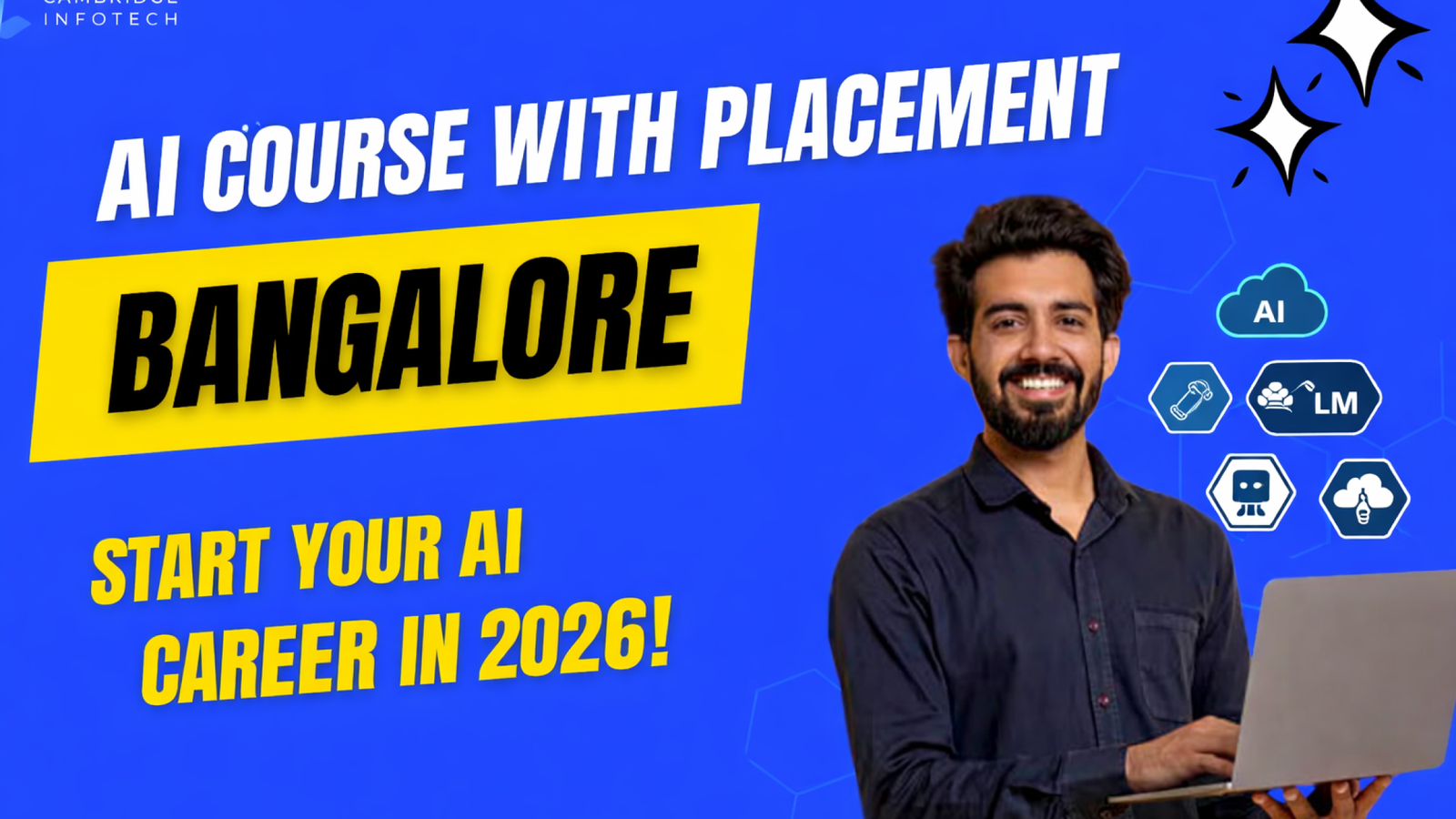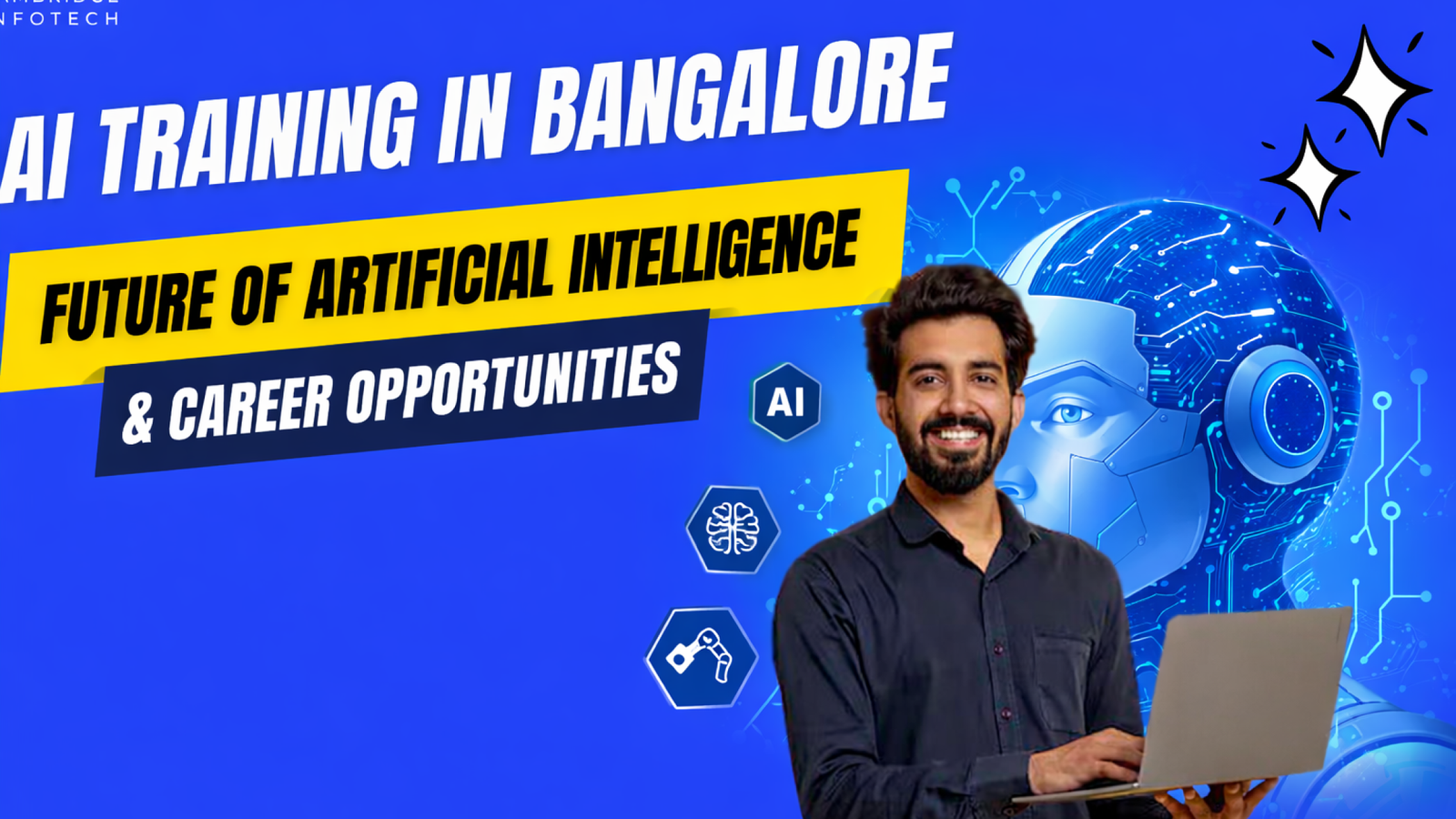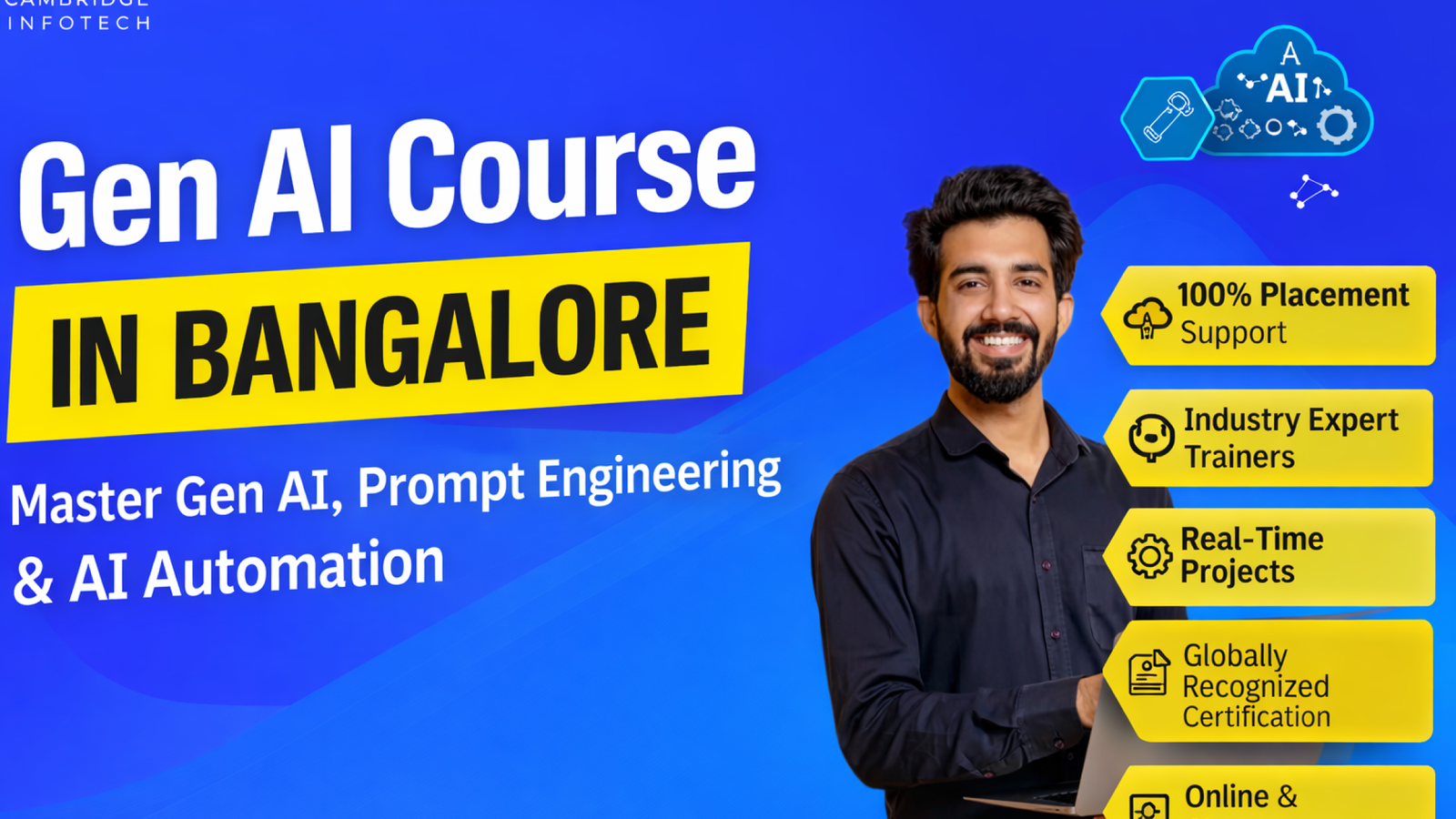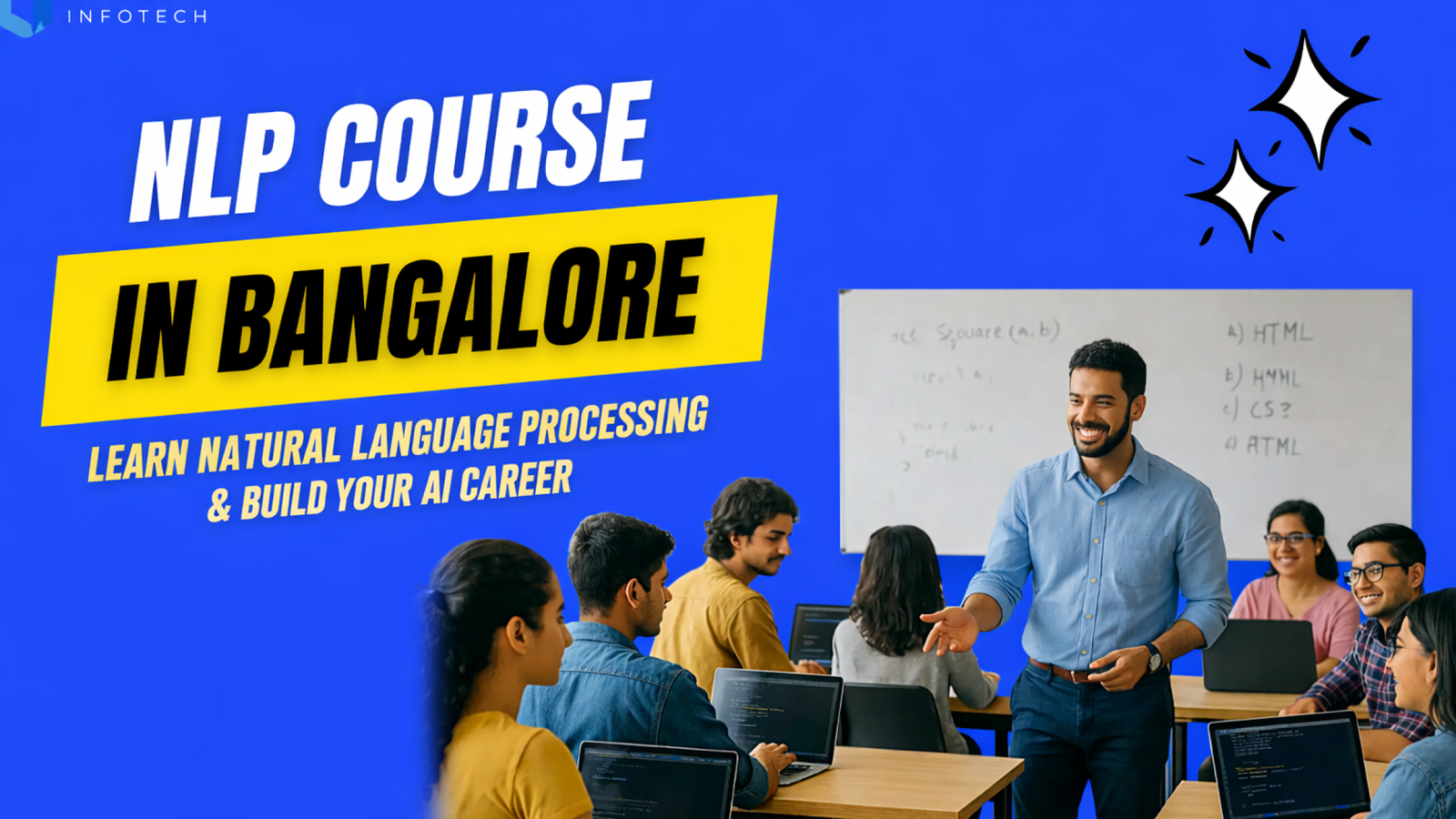Top AI Careers in Demand by 2026: Opportunities & Trends
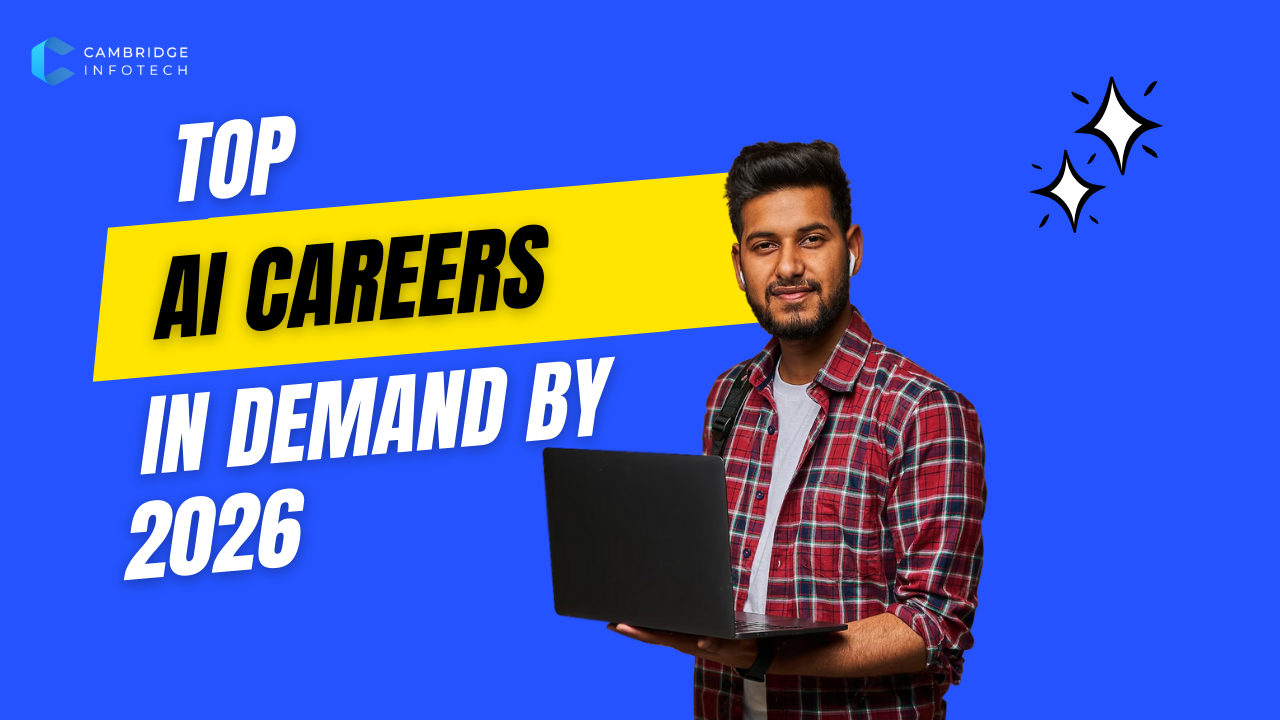
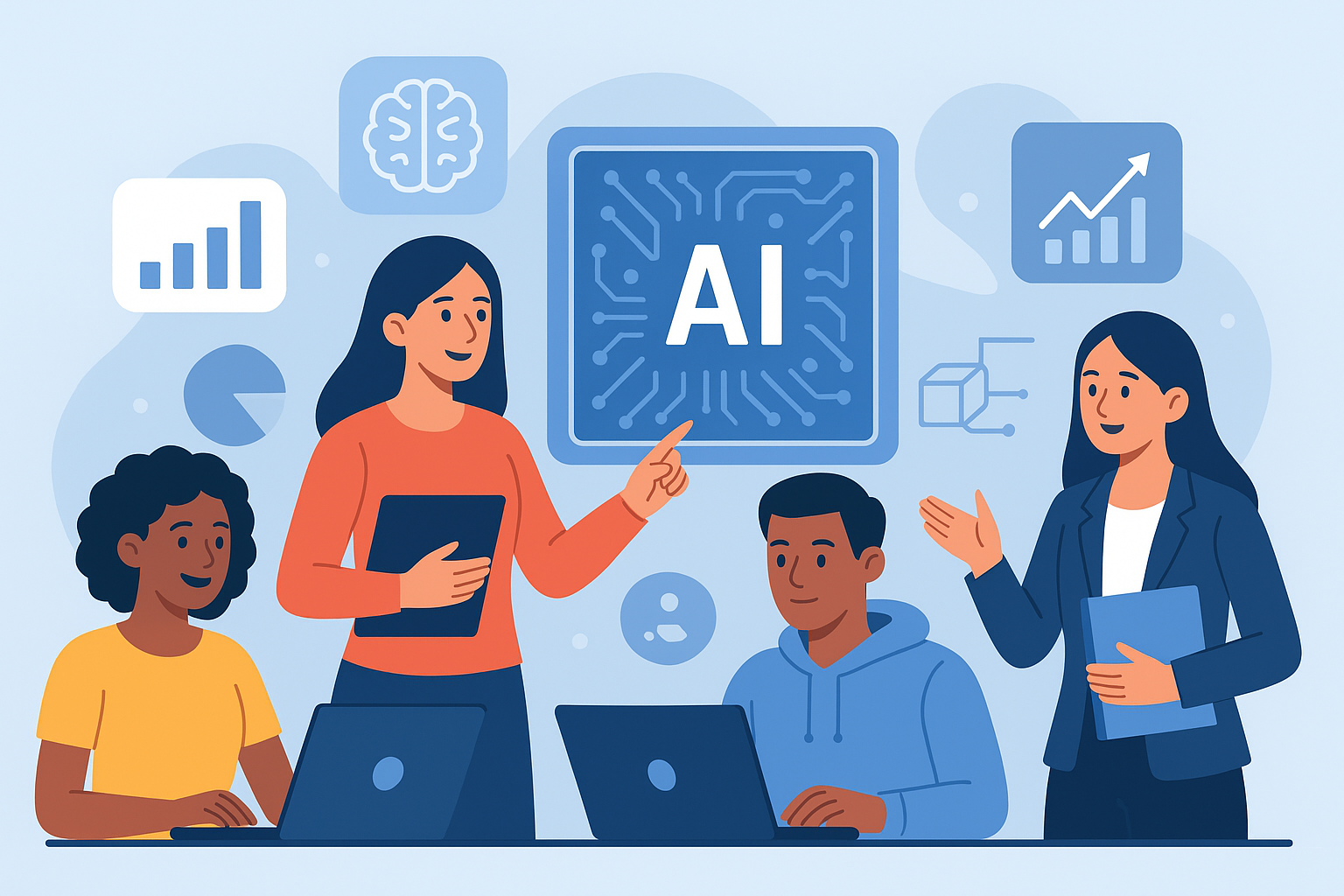
Introduction: Why AI Is Dominating the Job Market by 2026
Artificial Intelligence (AI) is no longer a distant concept—it’s the driving force behind innovation across the globe. From predicting what we watch on streaming platforms to revolutionizing healthcare diagnostics, AI is reshaping industries faster than ever.
By 2026, AI is expected to create over 97 million new jobs worldwide, making AI careers 2026 some of the most sought-after and rewarding opportunities available today. Students, graduates, and professionals looking to future-proof their careers cannot afford to ignore this growing field.
AI careers 2026 aren’t just about coding or technical skills—they’re about solving real-world problems, designing intelligent systems, and leading innovation across sectors like healthcare, finance, education, and retail. The demand for talented individuals ready to take on AI challenges is skyrocketing, and those who prepare early will dominate the job market.
Whether you aim to become a Machine Learning Engineer, Data Scientist, AI Product Manager, or specialize in NLP or Computer Vision, AI careers 2026 provide a pathway to high-paying, dynamic, and future-proof roles.
AI isn’t replacing humans—it’s empowering them. By learning the right skills, building a strong portfolio, and staying ahead of trends, you can secure one of the most exciting career paths available.
What You’ll Learn in This Blog
By the end of this article, you’ll understand:
The most in-demand AI careers for 2026
The skills and qualifications you need to succeed
The industries hiring AI experts at record pace
The salary insights and global job trends
How to start your AI career with expert training from Cambridge Infotech
Quick Fact
9 out of 10 top companies are investing heavily in AI to automate processes, personalize experiences, and drive innovation.
That’s why professionals skilled in AI are among the most sought-after talents worldwide.
Why AI Careers 2026 Are Exploding in Demand
The AI industry is experiencing exponential growth. By 2026, industries worldwide will require AI professionals to:
Develop intelligent systems and automation solutions
Drive data-driven decision-making
Improve customer experiences through AI personalization
Solve complex problems in healthcare, finance, and education
Students and professionals aiming for AI careers 2026 must embrace technical skills, critical thinking, and domain expertise to stay competitive. The demand for AI talent is no longer limited to tech companies—it spans healthcare, banking, retail, manufacturing, and even environmental sciences.
Explore Cambridge Infotech AI Courses
World Economic Forum Future Jobs Report
Why AI Careers 2026 Is the Tipping Point for AI
AI has already entered mainstream industries, but 2026 marks the true inflection point where automation, machine learning, robotics, and natural language processing (NLP) merge to reshape everything—from healthcare to banking to education.
Let’s look at the key reasons AI careers 2026 are booming:
Mass Adoption of AI Across Sectors:
Businesses are investing in AI tools for analytics, chatbots, automation, and predictive insights.Integration with Cloud & IoT:
AI combined with cloud computing and Internet of Things (IoT) enables smarter, connected systems.Shortage of Skilled Talent:
There’s a global talent gap—companies are hiring aggressively to fill AI-related positions.Government & Educational Support:
Countries like India, the US, and the UK are introducing AI courses in universities and funding research centers.High Salary Potential:
AI engineers and data scientists are among the top 10 highest-paid professionals worldwide.
Learn AI the Smart Way — with Cambridge Infotech
To succeed in AI careers 2026, you need structured, hands-on training that goes beyond theory.
At Cambridge Infotech, we help students and professionals master AI tools, algorithms, and applications through practical, project-based learning.
Enroll Now at Cambridge Infotech
and get industry-ready for the next generation of AI-driven jobs!
The AI Career Landscape — Top Roles & Opportunities
By 2026, AI will be deeply embedded in every sector—from healthcare and finance to logistics, marketing, and even creative industries. This shift is creating a diverse AI career landscape with roles that suit different interests, skill levels, and career goals.
Whether you love coding, problem-solving, designing systems, or managing AI products, there’s a career path for you. Let’s explore the most in-demand AI careers 2026 and how you can prepare for them.
1. Machine Learning Engineer
Why it’s in demand:
Machine learning engineers are the architects behind intelligent systems. They build models that allow machines to learn from data—powering recommendation engines, voice assistants, and predictive analytics tools.
Key Responsibilities:
Designing and training ML algorithms
Optimizing models for accuracy and efficiency
Working with data scientists and software engineers
Deploying ML systems into production
Skills Required:
Python, R, or Java
TensorFlow, PyTorch, Scikit-learn
Data preprocessing & feature engineering
Deep learning, NLP, and model evaluation
Average Salary (2026 Projection):
₹12–25 LPA (India) | $120K–$160K (Global)
Career Tip:
Start by learning Python for AI and working on small projects like spam detection, image classification, or movie recommendation systems.
2. Data Scientist
Why it’s in demand:
Data scientists are problem-solvers who turn data into actionable insights. As data becomes the new “digital oil,” every company needs skilled professionals who can extract value from it.
Key Responsibilities:
Collecting, cleaning, and analyzing large datasets
Building predictive and prescriptive models
Visualizing insights using BI tools
Collaborating with stakeholders for data-driven strategies
Skills Required:
Python, R, SQL
Pandas, NumPy, Matplotlib
Machine learning algorithms
Big Data tools (Hadoop, Spark)
Average Salary (2026 Projection):
₹10–22 LPA (India) | $110K–$150K (Global)
Career Tip:
Create a GitHub portfolio of projects (like stock prediction or sales forecasting) to showcase your analytical skills.
3. NLP Specialist (Natural Language Processing)
Why it’s in demand:
With tools like ChatGPT, Siri, and Alexa dominating the market, NLP specialists are at the forefront of teaching machines how to understand human language.
Key Responsibilities:
Building and training language models
Sentiment analysis, chatbots, and text classification
Implementing speech recognition systems
Working on AI-powered assistants
Skills Required:
Python, NLTK, SpaCy, Transformers
Deep learning with TensorFlow / PyTorch
Text mining and data annotation
Average Salary (2026 Projection):
₹15–28 LPA (India) | $125K–$180K (Global)
Career Tip:
Experiment with open-source models like Hugging Face Transformers to gain real-world experience.
4. AI Research Scientist
Why it’s in demand:
AI research scientists drive innovation by developing new algorithms, neural architectures, and theories that push AI beyond its current limits. These experts work at companies like Google DeepMind, OpenAI, and IBM Research.
Key Responsibilities:
Researching and publishing AI innovations
Experimenting with advanced models
Collaborating with academic institutions
Improving existing AI frameworks
Skills Required:
Advanced math (calculus, probability, linear algebra)
Deep learning theory
Reinforcement learning & neural networks
Research and paper publication
Average Salary (2026 Projection):
₹20–35 LPA (India) | $150K–$200K (Global)
Career Tip:
If you love theoretical work, focus on AI research papers, TensorFlow optimization, and Ph.D.-level study paths.
5. AI Product Manager
Why it’s in demand:
AI Product Managers bridge the gap between tech teams and business strategy. They ensure AI solutions align with real-world needs and market demand.
Key Responsibilities:
Define product vision and AI use cases
Collaborate with engineers & data teams
Manage AI project lifecycle
Analyze market trends and feedback
Skills Required:
Understanding AI concepts
Business strategy and product lifecycle
Communication and leadership
Data analysis & project management
Average Salary (2026 Projection):
₹18–30 LPA (India) | $130K–$180K (Global)
Career Tip:
Learn both technical and management aspects—AI PMs who can “speak tech” and “think business” are highly valued.
6. Robotics Engineer
Why it’s in demand:
From autonomous delivery drones to robotic surgeons, AI-powered robots are transforming industries. Robotics engineers design and integrate AI algorithms to give machines decision-making abilities.
Key Responsibilities:
Designing robotic systems
Integrating AI for navigation, vision, and automation
Testing and maintaining robotic prototypes
Collaborating with hardware and software teams
Skills Required:
C++, Python, ROS (Robot Operating System)
Machine learning for robotics
Mechatronics and computer vision
Average Salary (2026 Projection):
₹10–24 LPA (India) | $120K–$160K (Global)
Emerging AI Roles in 2026 — The Future Starts Here 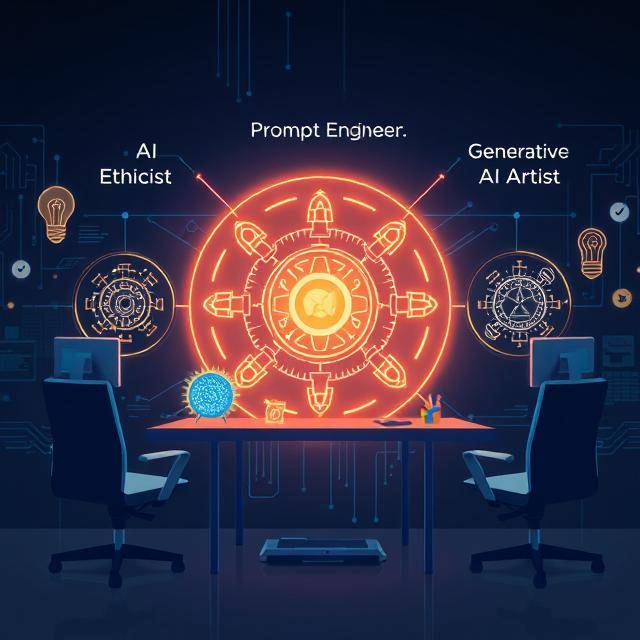
While core AI roles like data scientists and ML engineers are already in high demand, the real wave of innovation is coming from new, hybrid roles that blend technology with creativity, ethics, and strategy.
By 2026, these emerging AI careers will dominate the global job market — creating opportunities for those who understand both the power and the responsibility of artificial intelligence.
Let’s explore the next generation of AI jobs that are already taking shape.
1. AI Ethicist — Building Responsible AI Systems
Why it’s important:
As AI becomes more powerful, it also raises ethical questions — about bias, privacy, transparency, and control. AI ethicists ensure that AI systems are designed and deployed fairly, safely, and responsibly.
Key Responsibilities:
Develop AI governance frameworks
Audit AI algorithms for bias and fairness
Ensure compliance with data protection laws (GDPR, etc.)
Work with engineers and policymakers
Skills Required:
Understanding of AI algorithms and data ethics
Legal and regulatory awareness
Communication and stakeholder management
Average Salary (2026 Projection):
₹14–22 LPA (India) | $110K–$160K (Global)
Career Tip:
Ethics in AI isn’t just a “nice-to-have” — it’s becoming mandatory. Professionals who can blend tech expertise with moral reasoning will be highly valued.
2. Prompt Engineer — The Creative Power Behind AI
Why it’s in demand:
With generative AI tools like ChatGPT, Midjourney, and Claude transforming content creation, prompt engineers have emerged as one of the most exciting new roles.
They design the perfect prompts — or instructions — that guide AI systems to produce accurate, creative, and context-aware outputs.
Key Responsibilities:
Craft, test, and refine AI prompts
Collaborate with AI developers and UX designers
Train AI systems for better conversational performance
Optimize AI outputs for brand and tone consistency
Skills Required:
Strong communication & creative thinking
Understanding of NLP & AI model behavior
Basic coding and prompt syntax knowledge
Average Salary (2026 Projection):
₹12–18 LPA (India) | $100K–$150K (Global)
Career Tip:
This role blends art and science. If you enjoy writing, designing, or experimenting with AI tools, prompt engineering could be your perfect niche.
3. Edge AI Developer — Making AI Work on the Edge
Why it’s in demand:
Not all AI runs in the cloud. With billions of smart devices worldwide, Edge AI developers bring AI directly onto hardware — enabling faster, low-latency, and private computing.
Key Responsibilities:
Deploy AI models on IoT and embedded systems
Optimize algorithms for speed and efficiency
Work on real-time AI applications (smart homes, wearables, autonomous vehicles)
Skills Required:
C++, Python, and TensorFlow Lite
Edge computing and microcontrollers
Cloud integration and IoT networks
Average Salary (2026 Projection):
₹16–26 LPA (India) | $120K–$170K (Global)
Career Tip:
Edge AI is the future of smart devices. Learn how to integrate AI with hardware for industries like automotive, healthcare, and logistics.
4. AI Auditor — The Watchdog of AI
Why it’s in demand:
As governments push for AI accountability, companies need professionals who can evaluate and audit their AI models for compliance, accuracy, and ethics.
Key Responsibilities:
Assess model bias, data security, and reliability
Audit AI systems for transparency and compliance
Work with legal and compliance teams
Skills Required:
Knowledge of data regulations (GDPR, AI Act)
Analytical and problem-solving skills
Familiarity with AI model evaluation
Average Salary (2026 Projection):
₹13–20 LPA (India) | $110K–$150K (Global)
Career Tip:
If you’re detail-oriented and love ensuring systems work properly, auditing AI systems offers stability, respect, and impact.
5. AI Designer — The Fusion of Art and Intelligence
Why it’s in demand:
Design and AI are merging fast. From personalized interfaces to generative art, AI designers use technology to craft intelligent, human-centered experiences.
Key Responsibilities:
Design human-AI interfaces
Create visual outputs with AI tools (images, UX, videos)
Collaborate with AI engineers and marketing teams
Skills Required:
UI/UX design
Prompt engineering for AI design tools
AI-based creative tools like DALL·E, Runway, or Midjourney
Average Salary (2026 Projection):
₹10–17 LPA (India) | $95K–$130K (Global)
Career Tip:
Designers who integrate AI into their creative process will have a massive edge in marketing, gaming, and product development.
The Future of Emerging AI Roles
By 2026, hybrid professionals — those who blend technical knowledge with soft skills — will dominate the job market.
AI will no longer be confined to “tech experts.” Instead, marketers, writers, teachers, designers, and business leaders will all use AI to amplify their impact.
The secret?
Continuous learning and practical training — two things that Cambridge Infotech specializes in.
Top Skills You Need for AI Careers 2026 — What Employers Really Want
You’ve seen how AI is changing every industry — but what actually makes someone employable in this field?
By 2026, AI employers won’t just be hiring coders — they’ll be hiring problem solvers, innovators, and lifelong learners who know how to apply AI to real-world problems.
Let’s break down the top technical and soft skills you’ll need to build a successful AI career in 2026.
Technical Skills for AI Careers 2026
1. Programming Languages (Python, R, Java)
AI runs on code — and Python is its universal language.
It’s simple, powerful, and supported by thousands of AI libraries like TensorFlow, PyTorch, and scikit-learn.
Why it matters:
Without programming, you can’t build, train, or optimize AI models.
By 2026, Python will remain the #1 AI skill employers look for.
Learn at Cambridge Infotech:
Our AI & Machine Learning Foundations course starts with Python and progresses to advanced model-building techniques.
From basics to breakthrough — learn AI the smart way.
Start Learning Python for AI
2. Machine Learning & Deep Learning
These are the brains of AI.
Machine Learning (ML) helps systems learn from data, while Deep Learning (DL) mimics the human brain using neural networks.
Skills Covered:
Supervised & unsupervised learning
CNNs, RNNs, and Transformers
Model training and optimization
Why it matters:
Almost every AI application — from recommendation systems to self-driving cars — relies on ML/DL.
Cambridge Infotech CTA:
Get certified in Machine Learning and Deep Learning Mastery — designed for students who want hands-on exposure to real-world AI projects.
Turn data into intelligence.
Explore ML & DL Course
3. Data Science & Analytics
AI is useless without data — and data is meaningless without insight.
Data Science helps AI professionals interpret massive datasets to guide better decisions.
Key Concepts:
Data collection & cleaning
Exploratory Data Analysis (EDA)
Predictive modeling
Data visualization
Tools to Learn: Pandas, NumPy, Matplotlib, Power BI, Tableau
Cambridge Infotech CTA:
Our Data Science Professional Program teaches how to turn raw data into smart business insights — one of the most valuable AI careers 2026 skills.
Master data. Master the future.
Join the Program
4. Natural Language Processing (NLP)
By 2026, NLP will power everything from virtual assistants to sentiment analysis tools.
Key Skills:
Text preprocessing
Sentiment & intent detection
Chatbot development
LLM fine-tuning (like ChatGPT models)
Cambridge Infotech CTA:
Our NLP & Generative AI Specialization lets you build your own chatbot, analyze language data, and master tools like Hugging Face & OpenAI APIs.
Teach machines to understand humans.
Enroll in NLP Course
5. AI Tools & Frameworks
Employers expect you to be familiar with the ecosystem powering AI.
Learn to use frameworks and tools such as:
TensorFlow and PyTorch (for model building)
Keras (for deep learning)
Scikit-learn (for ML basics)
OpenAI API (for generative AI applications)
Cambridge Infotech CTA:
Our AI Developer Tools Bootcamp gives you hands-on experience with all major AI frameworks used by industry leaders.
Learn the tools that power tomorrow.
Explore Bootcamp
6. Cloud Computing
AI models require vast storage and compute power.
By 2026, cloud-based AI platforms like AWS, Azure, and Google Cloud will dominate enterprise AI deployments.
Skills in Demand:
Model deployment using AWS SageMaker, Azure AI, or Vertex AI
Cloud security
API integration
Cambridge Infotech CTA:
Master Cloud AI Integration and learn to deploy real-time models with our advanced certification program.
Bring AI to the cloud — and to the world.
Join Cloud AI Course
7. MLOps (Machine Learning Operations)
MLOps bridges the gap between AI development and deployment — ensuring scalability and performance.
Why it’s important:
Every AI company now wants engineers who can manage, monitor, and maintain machine learning pipelines.
Cambridge Infotech CTA:
Our MLOps for Engineers Program teaches automation, version control, and production-level model deployment.
Build, train, and launch AI models with confidence.
Explore MLOps Program
Soft Skills for AI Careers 2026
AI professionals are not just coders — they’re innovators, communicators, and problem-solvers.
Here are the top soft skills employers will expect:
1. Analytical Thinking
Employers value professionals who can look at complex data and find actionable insights. AI tools can crunch numbers — but humans must interpret them.
2. Problem-Solving
You’ll often face incomplete data, model failures, and new challenges. AI professionals who can think creatively will lead innovation.
3. Collaboration
AI is teamwork. Developers, data scientists, designers, and managers must collaborate effectively to build intelligent systems.
4. Communication
AI projects fail when tech experts can’t explain their ideas clearly. Learn to present complex concepts simply — especially when working with non-technical teams.
5. Adaptability
AI is evolving faster than any field. Employers love candidates who stay curious and open to continuous learning.
Cambridge Infotech CTA:
Our programs go beyond coding — they build your communication, creativity, and critical thinking skills for long-term success.
Grow your technical and personal edge with Cambridge Infotech.
Get Started
How to Build a Career in AI by 2026 — Step-by-Step Roadmap for Students
Starting a career in Artificial Intelligence might sound intimidating — but it doesn’t have to be.
You don’t need to be a math genius or coding expert to begin; you just need the right roadmap and consistent learning.
Here’s a clear, actionable AI career roadmap 2026 designed for students, fresh graduates, and professionals who want to transition into this exciting field.
The Complete AI Career Roadmap 2026 — Quick Recap
| Stage | Goal | Cambridge Infotech Program |
|---|---|---|
| Step 1 | Build foundations in Python & Math | AI Foundation Course |
| Step 2 | Learn ML & Deep Learning | Machine Learning Certification |
| Step 3 | Master data handling | Data Science Integration Program |
| Step 4 | Choose specialization | NLP / Robotics / Generative AI |
| Step 5 | Create projects & portfolio | Capstone Projects |
| Step 6 | Earn global certification | AI Mastery Certificate |
| Step 7 | Network & apply for jobs | Mentorship & Placement Program |
Cambridge Infotech Final CTA for Section:
Ready to turn this roadmap into reality?
Join Cambridge Infotech — where you’ll go from student to certified AI professional through structured learning, live mentorship, and job-ready projects.
Your AI career 2026 begins here.
Enroll Now
Top Companies Hiring for AI Careers 2026 — Where You Can Work Next
The AI revolution is no longer a buzzword — it’s a full-blown global movement reshaping how businesses operate.
By 2026, companies across every sector — from tech giants to startups — will depend on AI professionals to drive innovation, efficiency, and data-driven decisions.
If you’re preparing for AI careers 2026, here’s the good news: the demand for AI professionals is far greater than the supply.
Let’s explore which companies are leading the hiring wave, what roles they’re offering, and how you can position yourself to join them.
Top Global Companies Hiring AI Professionals
The world’s most innovative organizations are investing billions in AI. These companies are constantly searching for skilled AI engineers, ML specialists, data scientists, and AI product managers.
1. Google
AI Focus Areas: Machine learning, generative AI (Gemini), NLP, quantum computing
Popular Roles: AI Research Scientist, ML Engineer, TensorFlow Developer
Why it’s great: Google AI offers world-class research opportunities and open-source collaborations.
2. Microsoft
AI Focus Areas: Copilot AI, Azure Machine Learning, Cognitive Services
Popular Roles: Data Scientist, Applied AI Engineer, AI Cloud Specialist
Career Tip: Learn Azure AI — Cambridge Infotech offers Azure-integrated AI learning modules to prepare students for Microsoft’s ecosystem.
3. Amazon (AWS AI)
AI Focus Areas: Cloud AI, Robotics, Recommendation Engines, Voice AI (Alexa)
Popular Roles: AI Engineer, Data Engineer, Robotics Specialist
Salary Range: ₹14–30 LPA (India) / $120,000+ globally
4. IBM
AI Focus Areas: IBM Watson, AI Ethics, Automation
Popular Roles: AI Analyst, NLP Engineer, AI Consultant
Fun Fact: IBM was one of the first companies to build an AI ethics framework — a growing field for future AI professionals.
5. Open AI
AI Focus Areas: Generative AI (ChatGPT, DALL·E), Reinforcement Learning, NLP
Popular Roles: AI Researcher, Data Scientist, Model Trainer
Note: AI creativity jobs (prompt engineers, AI content specialists) are booming due to Open Ai’s influence.
Cambridge Infotech CTA:
Want to work with global tech giants?
Our AI Mastery Program prepares you with practical projects inspired by Google, Microsoft, and Amazon’s real-world AI models.
Train like a pro. Work like a leader.
Enroll Now at Cambridge Infotech
🇮🇳 Top Indian Companies Hiring AI Talent
India is rapidly becoming an AI powerhouse. From startups to IT giants, every major firm is investing heavily in AI-driven transformation.
1. Tata Consultancy Services (TCS)
AI Focus Areas: Enterprise AI, Automation, and Predictive Analytics
Popular Roles: AI Developer, Automation Architect, Data Science Engineer
2. Infosys
AI Focus Areas: Infosys Topaz, Generative AI Services
Roles: ML Engineer, Data Analyst, AI Business Consultant
Career Edge: Infosys offers hybrid AI training — a skill Cambridge Infotech helps you build early on.
3. Wipro
AI Focus Areas: Responsible AI, Cloud AI, and AI-driven cybersecurity
Roles: AI Research Associate, AI Engineer, DevOps + AI Integrator
4. Tech Mahindra
AI Focus Areas: AI in Telecom, Computer Vision, and Automation
Roles: Data Engineer, Vision Specialist, AI Operations Analyst
5. Startups & Unicorns
Top Names: Razorpay, Swiggy, Zomato, Ola, and Haptik
Why Join: Startups offer faster growth, innovation, and exposure to full AI lifecycle — from model creation to deployment.
AI Career Salary Trends 2026
AI professionals are among the highest-paid tech experts globally.
Here’s what the future looks like by 2026:
| Role | Average Salary (India) | Global Average |
|---|---|---|
| AI Engineer | ₹10–25 LPA | $110,000+ |
| Machine Learning Engineer | ₹8–20 LPA | $100,000+ |
| Data Scientist | ₹9–22 LPA | $105,000+ |
| NLP Engineer | ₹8–18 LPA | $95,000+ |
| AI Product Manager | ₹12–30 LPA | $120,000+ |
| AI Research Scientist | ₹15–40 LPA | $140,000+ |
Insight:
Students who start learning AI today will be among the most sought-after professionals by 2026.
Where to Find AI Job Opportunities
Students often ask, “Where can I actually find AI jobs after completing my course?”
Here are some go-to platforms:
LinkedIn Jobs — Connect with recruiters directly
Indeed — Filter AI roles by company, salary, and location
Glassdoor — Research company reviews and interview experiences
Naukri.com — India’s best portal for AI, Data Science, and Cloud roles
AngelList / Well-found — Perfect for joining fast-growing AI startups
Cambridge Infotech CTA:
Cambridge Infotech students gain early access to AI internship listings, job alerts, and placement drives through our partner network.
Your job search starts before you graduate.
Get Placement Access
Conclusion — Your Path to AI Careers 2026
The journey to a successful AI career is a blend of learning, practice, specialization, and networking. By 2026, the demand for AI professionals will continue to surge across industries — from healthcare and finance to education, manufacturing, and sustainability.
Here’s what you should take away:
1. AI Careers Are Diverse and Future-Proof
AI offers roles for every skill set: technical, creative, analytical, or managerial. Whether you aim to become an ML Engineer, AI Research Scientist, Prompt Engineer, or AI Product Manager, opportunities are vast and rewarding.
2. Industries Hiring AI Talent Are Expanding
Global giants like Google, Microsoft, Amazon, Open AI, and Indian leaders like TCS, Infosys, and Wipro are already integrating AI into their core operations. Startups and unicorns are providing faster growth and exposure to cutting-edge AI projects.
3. Skills Matter — Both Technical & Soft
AI professionals need a combination of:
Technical Skills: Python, Machine Learning, Deep Learning, NLP, Cloud AI, MLOps
Soft Skills: Analytical thinking, problem-solving, adaptability, and collaboration
Master these, and you’ll stand out in the competitive AI job market.
4. Practical Experience Makes You Job-Ready
Projects, internships, and real-world applications are as important as certifications. Build a portfolio that showcases:
AI chatbots
Predictive analytics models
Computer vision applications
Data-driven solutions
5. Certifications & Continuous Learning Open Doors
Global certifications, such as those offered by Cambridge Infotech, Google AI, AWS, or IBM, validate your skills and make you a preferred candidate for top AI roles. Continuous learning ensures you stay relevant in this ever-evolving field.
6. Cambridge Infotech — Your Partner in AI Careers 2026
Cambridge Infotech provides:
Hands-on AI programs across multiple domains
Live mentorship and capstone projects
Career guidance and placement support
Global certifications for competitive advantage
Call to Action:
Don’t wait for the future to come — build it today.
Join Cambridge Infotech and start your journey toward high-paying, future-proof AI careers 2026.
Enroll Now


